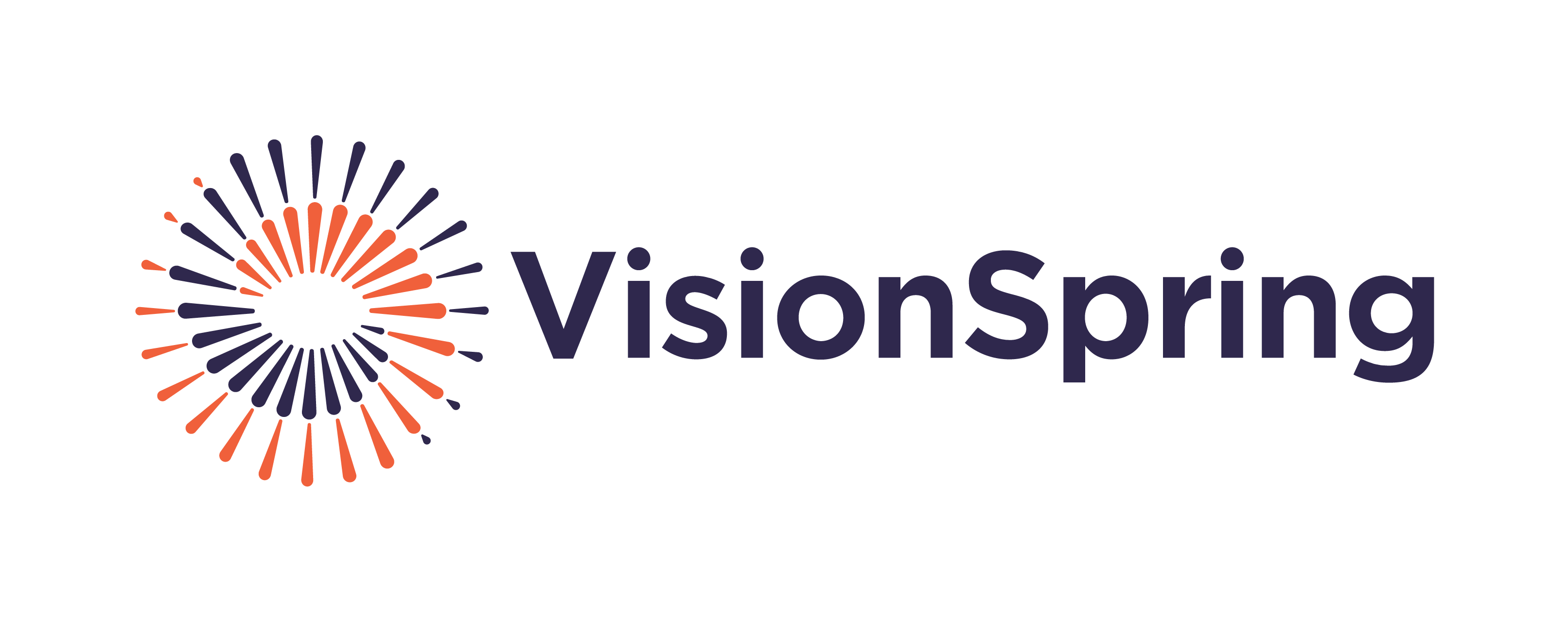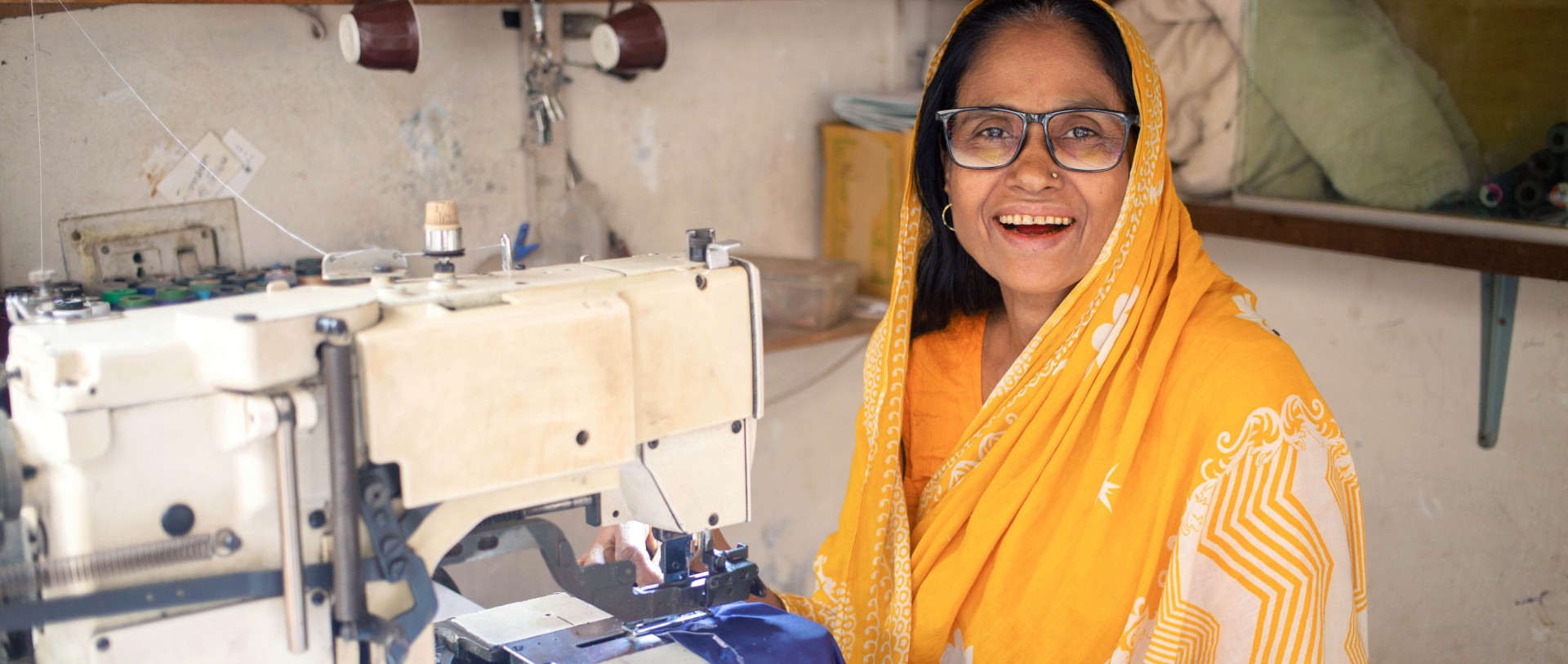
THRIVE
Randomized Controlled Trial
Reading Glasses Dispensed by Health Workers Boost Income and Quality of Life in Rural Bangladesh
The THRIVE - Tradespeople and Hand-workers Rural Initiative for a Vision-enhanced Economy - trial is the first randomized controlled trial to examine the link between glasses and income. The study was carried out in rural Bangladesh across a range of occupations including agriculture, artisan craft, skilled trades, and micro-enterprise.
THRIVE demonstrates that a pair of reading glasses increases the average median income of people in low-income communities by 33.4%.
In addition to measuring the impact of reading glasses on worker income, the study highlighted the opportunity to increase access to vision care by training non-medical personnel such as community health workers to conduct basic sight tests and dispense ready-made reading glasses.
THRIVE’s focus on income builds upon the 2018 PROSPER trial which quantified the productivity gains of clear vision. PROSPER revealed reading glasses increased productivity among tea workers by 21.7% on average and 31.6% for those over age 50, measured in kilograms picked.
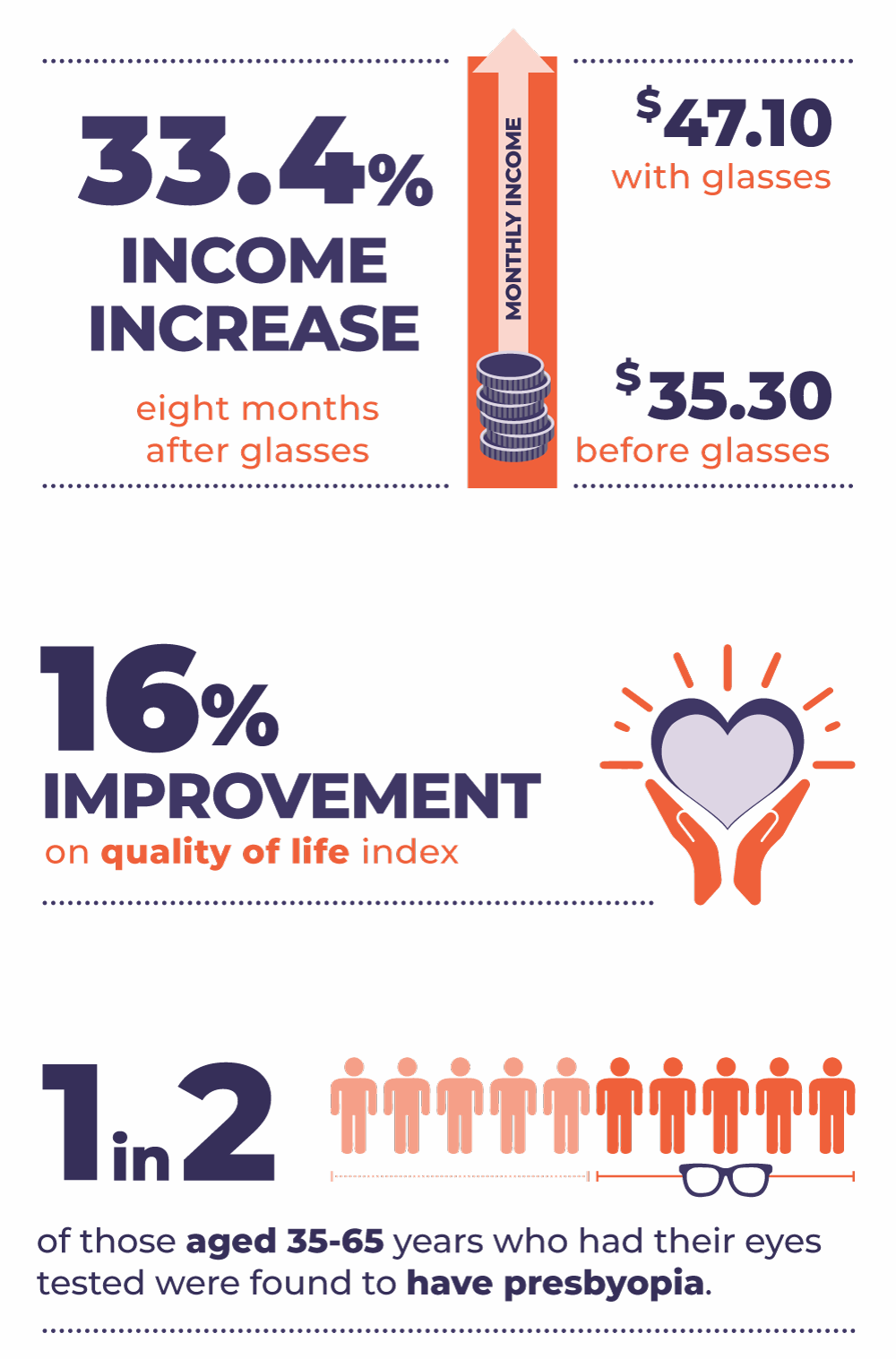
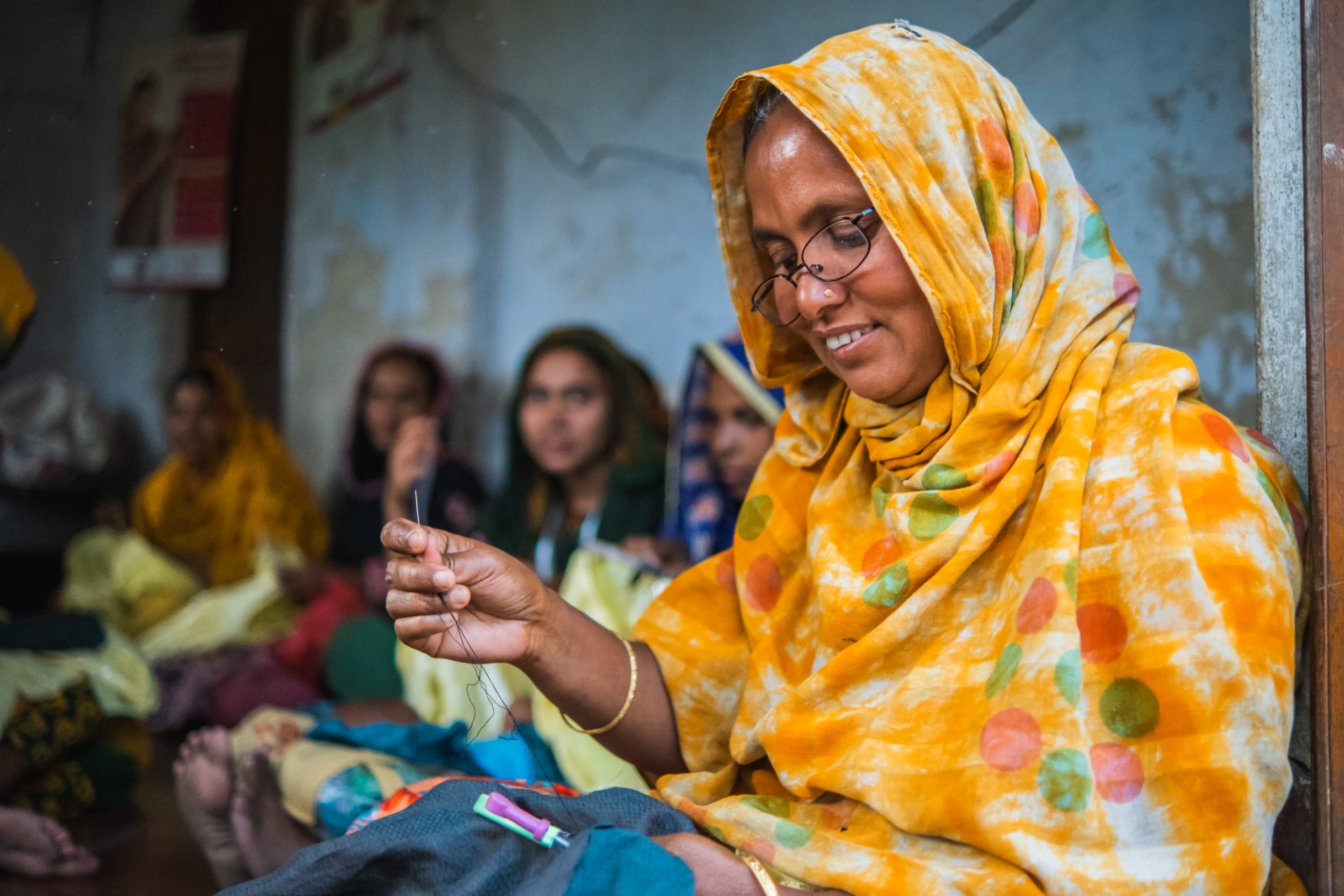
Key Findings

Increased Income
In the group receiving reading glasses (intervention), monthly median income increased from US$35.30 to $47.10 within eight months - a difference of 33.4%. In the group that needed but did not have reading glasses (control), median income did not change.
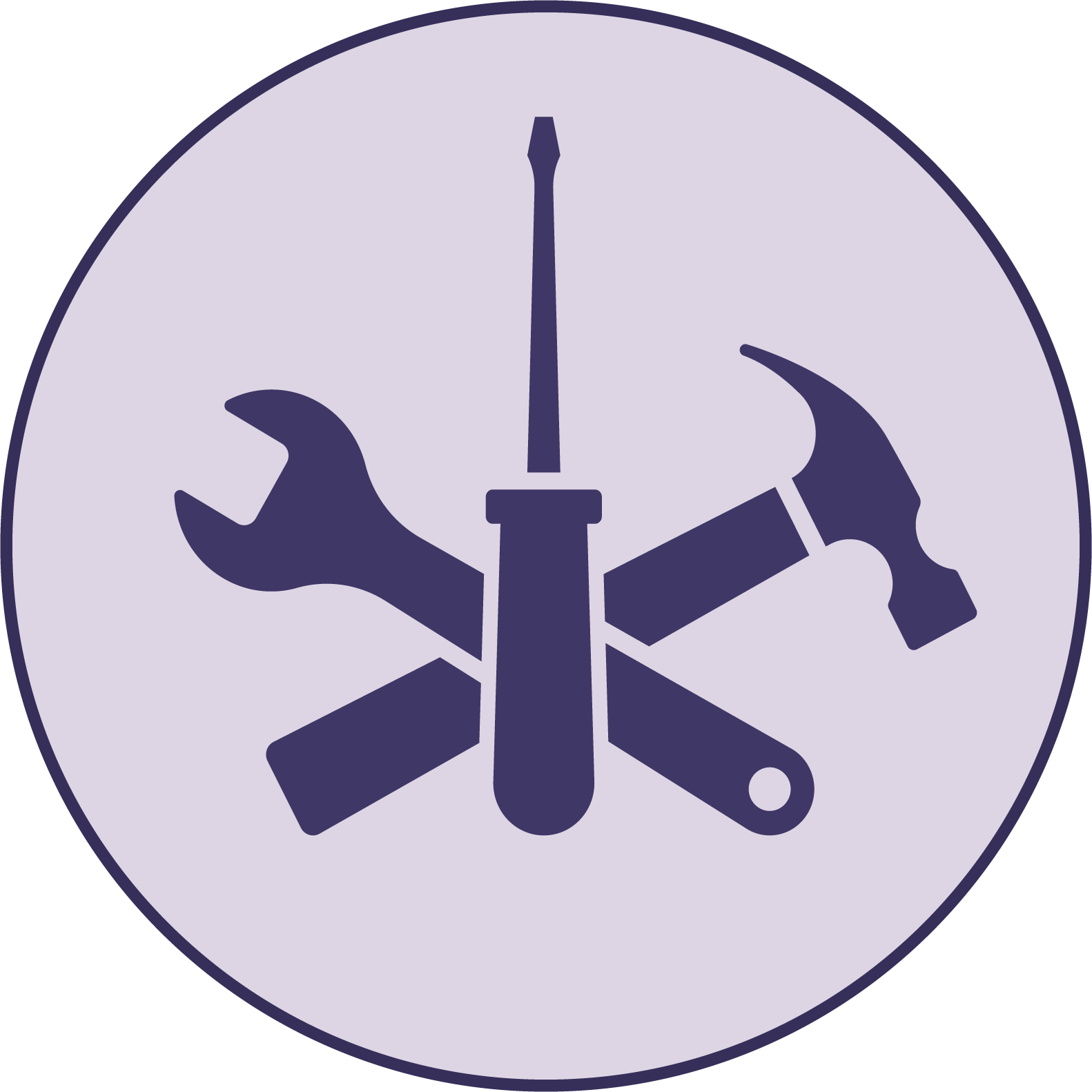
Enabling returns to work
Income increases were more likely among those who were economically inactive at the start of the study. This suggests that community-based access to reading glasses helped people return to work.
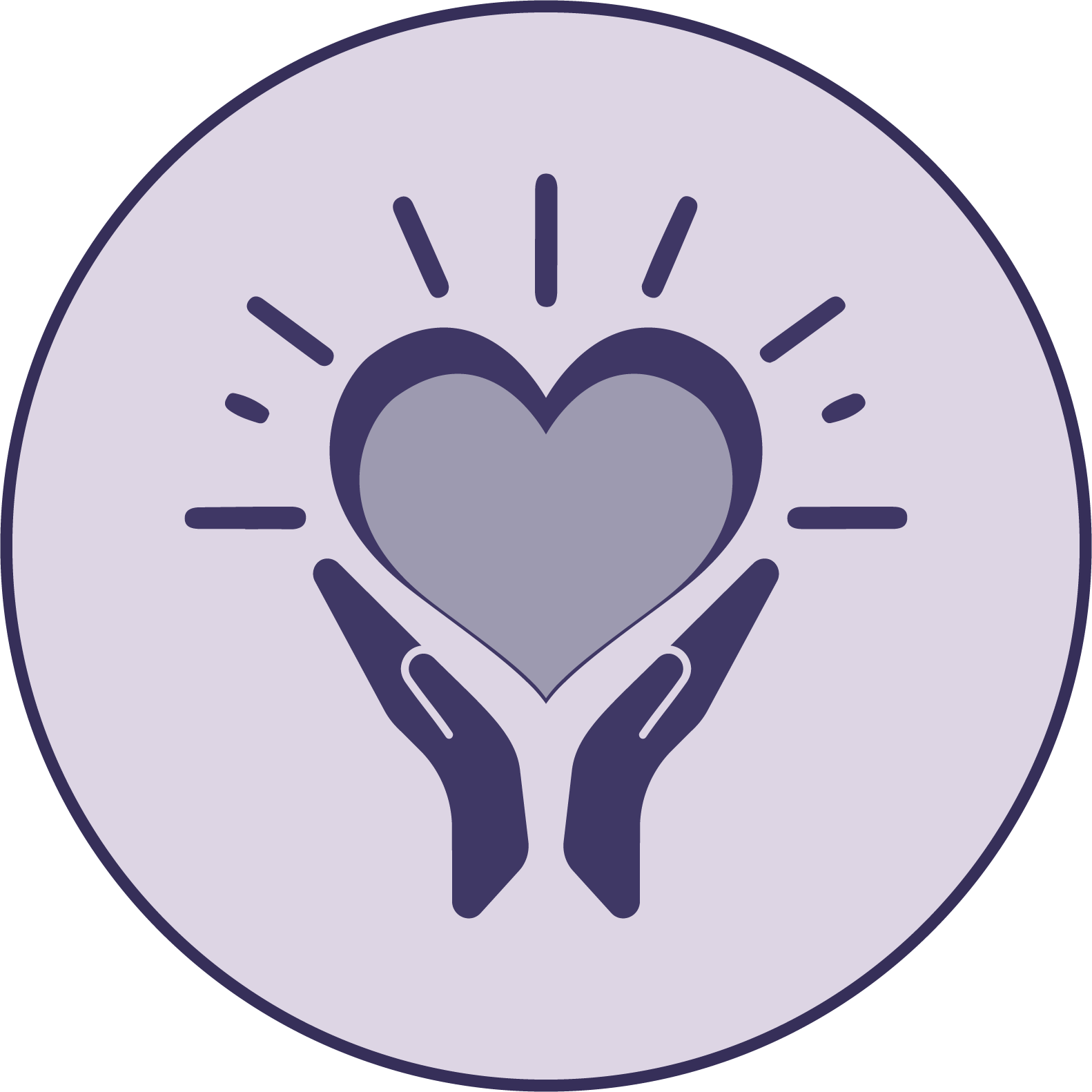
Improved quality of life
Wearers experienced a 16% improvement on a near vision quality of life index. The index measures factors such as people’s sense of independence and ease of doing daily tasks, such as reading a mobile phone display and seeing the food they are preparing and eating.
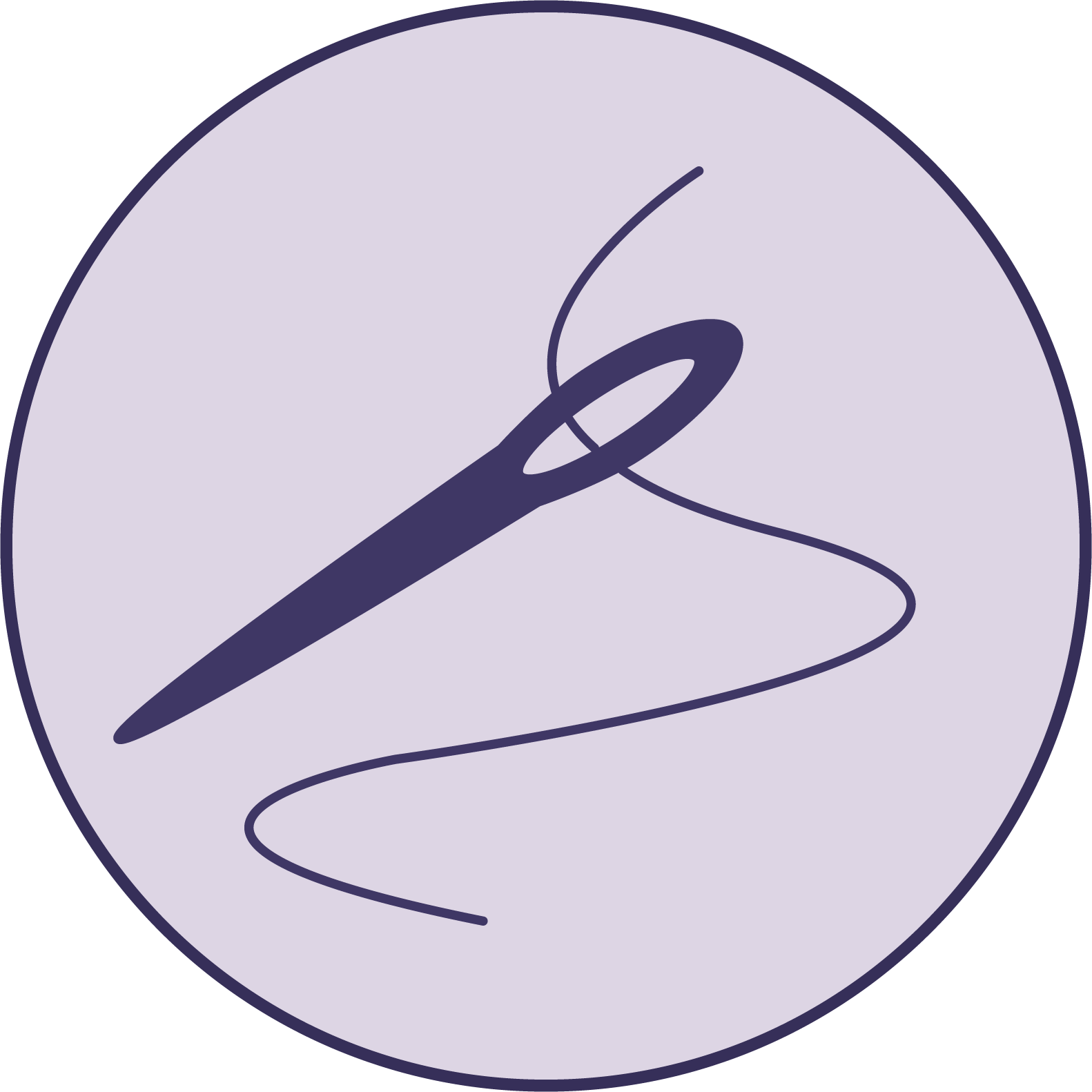
Reading glasses are not just for reading
Only 35% of participants in the study were literate. There was no significant difference in the income impact or the QOL impact for those who were or were not literate. Reading glasses help people accomplish work and household tasks such as sorting grain, threading a needle, or weaving.
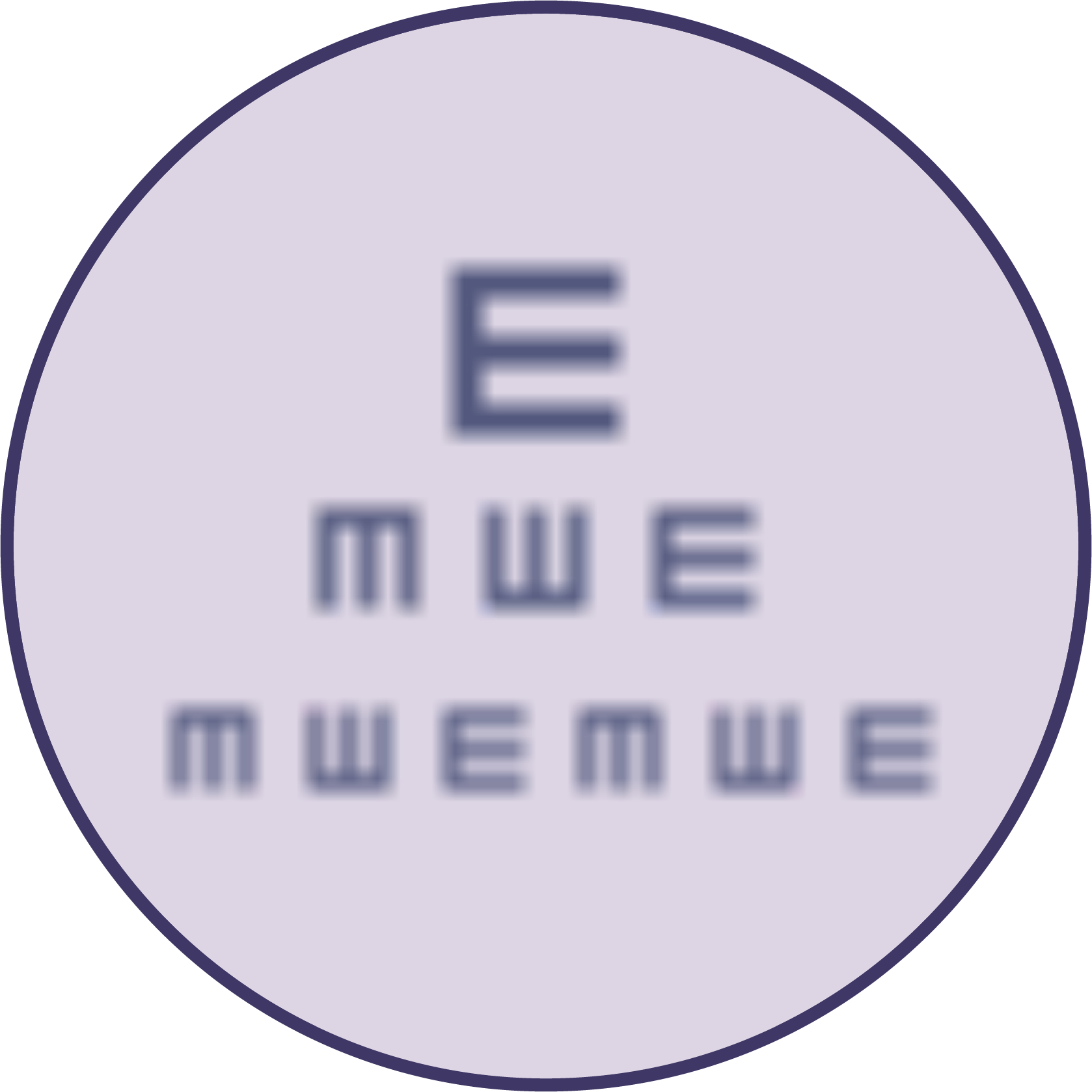
Widespread blurry vision
The trial found high levels of blurry near vision (presbyopia) in rural Bangladesh. Of those aged 35-65 years, 50% presented with presbyopia.
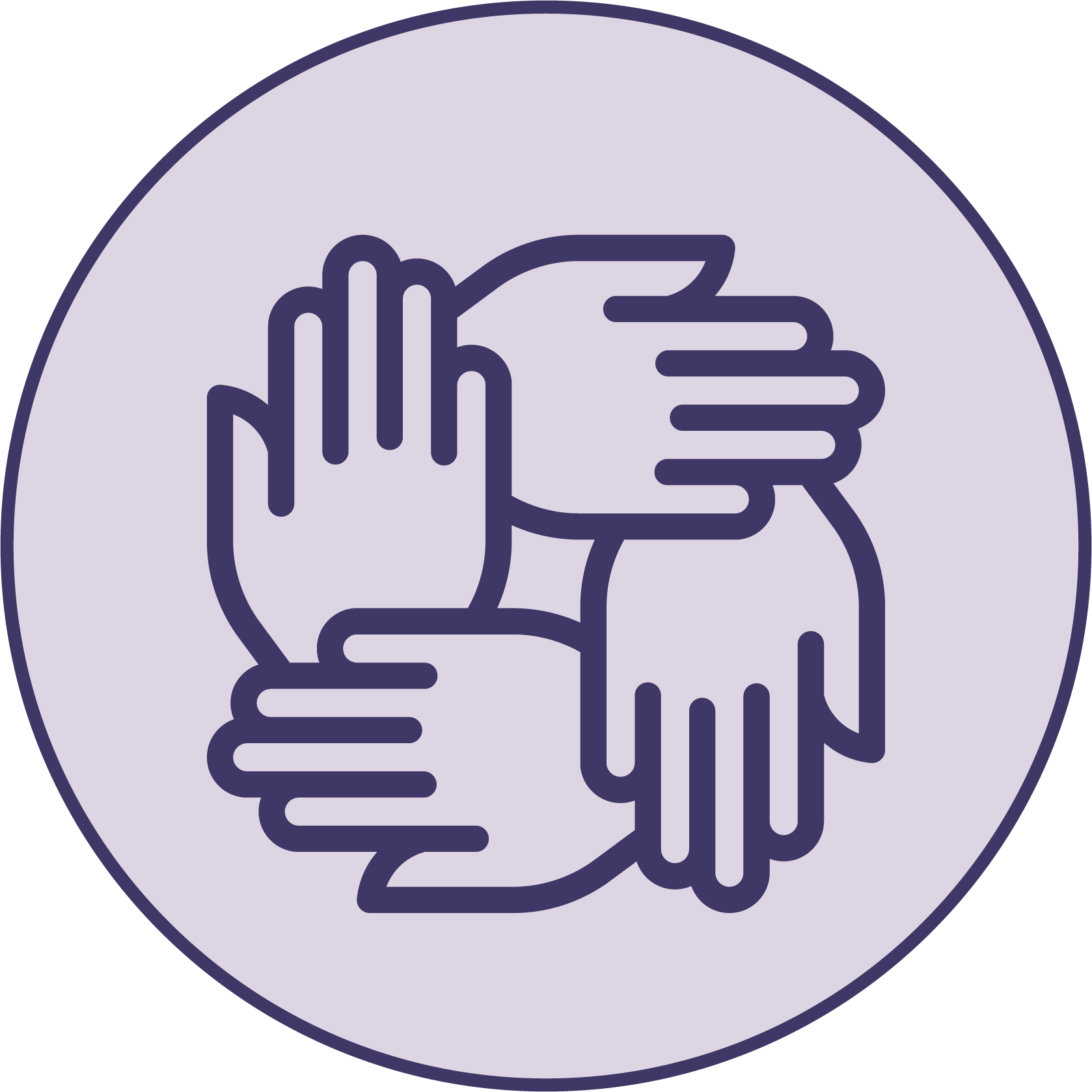
Task sharing to reach more people
The trial demonstrated that non-medical personnel screening for and correcting presbyopia with reading glasses significantly improved income. As such, THRIVE affirms that task-sharing with trained personnel, such as community health workers, is a viable solution to improve livelihoods and serve more people where specialists are not available.
THRIVE Methodology
THRIVE was carried out in 59 villages across 15 districts in Bangladesh. 824 study participants with uncorrected presbyopia were enrolled, aged 35-65 years old. Median age was 47. The gender split was 52% male and 48% female. 423 participants were randomized to receive immediate free reading glasses (intervention), and 401 were randomized to receive glasses eight months later (control). Non-medical personnel conducted the vision screening and glasses dispensing without the involvement of optometrists.
A solution to fight poverty
More than a billion people globally don’t have the glasses they need to see clearly. Age-related blurry vision (presbyopia) is the leading cause of vision impairment globally. Without reading glasses more than 826 million1 people have difficulty performing routine tasks and maximising their income earning potential.
1: Fricke TR, et al. Global prevalence of presbyopia and vision impairment from uncorrected presbyopia. Ophthalmology. 2018;125(10):1492-9.
THRIVE in the Media

Glasses Improve Income, Not Just Eyesight
A study found that when farsighted workers in Bangladesh were given free reading glasses, they earned 33 percent more than those who had not.

Having the right glasses could boost earning power by a third, Bangladesh study shows
Researchers find that in low and middle-income countries owning spectacles can help people over 35 increase their income

Glasses aren't just good for your eyes. They can be a boon to income, too
Reading glasses are easy to come by in Western countries. But getting a pair in the Global South can be a challenge. A new study shows the surprising benefits that a pair of specs can bring.
THRIVE Study Partners




Additional Resources
THRIVE RCT Press Release
Reading glasses dispensed by health workers boost income and quality of life in rural Bangladesh
VisionSpring’s Screening Methodology Adopted By WHO
World Health Organization adopts VisionSpring’s screening methodology to increase global access to reading glasses.
WHO SPECS 2030
The global strategy to increase effective coverage of refractive error by 40%.
